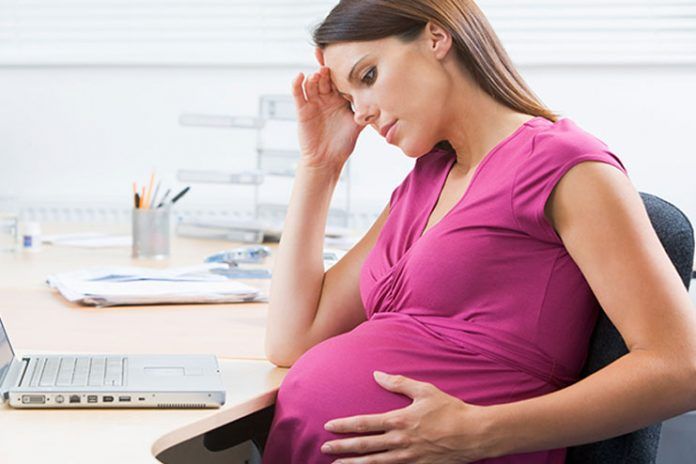Stress has already become an inevitable part in our lives. A new study suggests that excess prenatal parental stress can have impacts on the behavioural problems in the majority of the toddlers. Even though it was still a question up until now, things have been given a perspective with this specific study which connects the prenatal parental stress with the behavioural problems in the toddlers.
A new study (R) conducted by the researchers from the University of Cambridge suggests that any kind of prenatal parental stress have been recorded to have impacts on the behavioural problems in the 2-year-olds. This is also the specific study that highlights that the couple conflicts can have impacts on the emotional issues in young children.
The team of researchers combined from the University of Cambridge, Birmingham as well as New York and Leiden suggested saying that the findings of the study suggest better needs and impacts and support for the parents before, during as well as after pregnancy to help have better impacts on the children.
The study has also delved deep into examining the impacts on both the mother and father’s well being before as well as after birth on the children’s adjustment at not just 14 but till 24 months of age.
Professor Claire Hughes from Cambridge’s Centre for Family Research, who is also the lead author of the study suggested that till now the salient experiences of the dads, especially the first time dads have been pushed aside in comparison to the mums. This is something that does need to change, mainly because of the fact that the behavioural problems in the children can be affected by the early relationship with both their parents.
These findings from the study have already been shared with the National Childbirth Trust and the authors of the study are also working to encourage the NHS and the associated organizations around to ensure to reconsider the kind of support that they offer.
The study focused on the 438 first time expectant mothers as well as fathers who were then followed up at the 4th, 14th and 24th month following the birth. The parents who were included in the study were from East of England, New York State as well as the Netherlands.
The researchers found that the pre-natal well being of the first time expectant mothers and the kind of stress they dealt with had direct impacts on the children’s behaviour by the end of the 24 months following their birth. Majority of the mums who suffered from stress and anxiety during the pre-natal stage are more likely going to experience behavioural problems in their children including temper tantrums, spitefulness etc.
Additionally, the two-year-olds were also most likely going to exhibit the emotional problems being unhappy, tearful, being afraid and so many similar ones. These kinds of issues have been very evident in parents who have been experiencing worse post-natal issues in their relationship.
Hughes suggested that the main highlight and aim of the study is to alert the authorities about the dire need of better and earlier support for the couples to help ease their transition to the parenthood without any issues as such.
Additionally, the research also highlights the fact that the genetic factors are more likely going to play a very crucial role in the kind of mental health disabilities that the new parents are likely to face.
Dr Rory Devine, a developmental psychologist at the University of Birmingham, who is also the co-author of the study suggested that the main objective behind the study is to highlight the fact that the prenatal parental stress or the other mental health problems can have important impacts on one’s child’s behavioural issues.
The researchers prepared standardized questionnaires as well as in-person interviews in which the would-be parents reported of the possible symptoms of anxiety and depression along the third trimester of the pregnancy itself and then later when the child was in their 4th, 14th as well as the 24th month.
Along with that, the parents also did write some of the standardised questionnaire involving several of the couple relationship quality along with the children’s behaviour as well as the emotions swirling around in their minds.
Hughes highlighted that it is often quite tough to get the fathers to get involved in such a study but this study did include an ample amount of participants. Additionally, both the mother and the father answered similar questions which made the basis of comparison a lot easier as well.
Dr Sarah Foley, also from Cambridge’s Centre for Family Research, another co-author of the study stated that if the mother experiences a traumatic birth, chances are that the same will end up affecting the fathers as well.
The research is part of the ongoing process of delving into the prospects of the prenatal parental stress and the overall emotional well being of the parents and the kind of impacts it has on the mental health and development of the child as well.




















